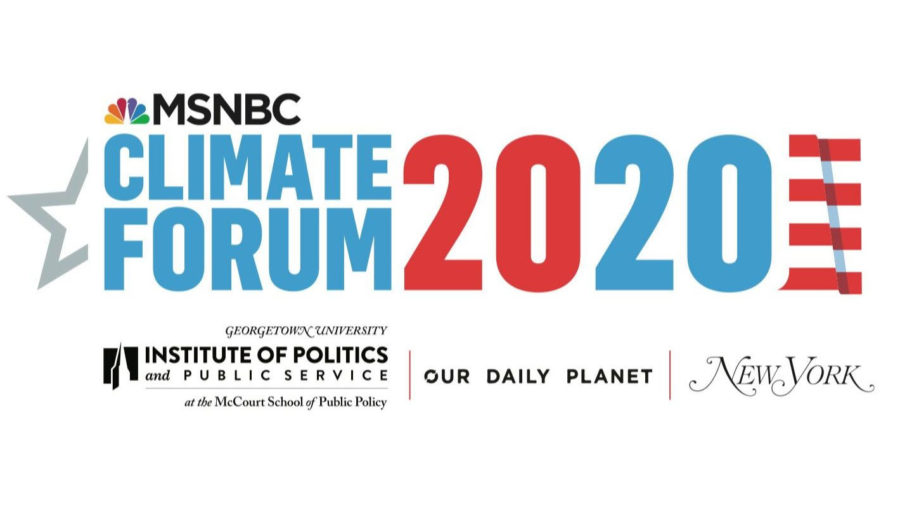Climate forum to allow students to ask 2020 presidential candidates questions
Courtesy of Iowa State University College of Liberal Arts and Sciences,
Iowa State students will have the chance to ask 2020 presidential candidates questions during MSNBC’s Climate Forum.
September 18, 2019
As climate change becomes a more important issue within the Democratic Party according to polling, Iowa State students will have the opportunity to ask questions on the topic during a “2020 Climate Change Forum Watch Party.”
Iowa State students will be able to ask questions in the forum at the watch party hosted 9 a.m. to 4 p.m. Thursday and 8 a.m. to 2 p.m. Friday in the Gold Room of the Memorial Union.
MSNBC is scheduled to broadcast the climate change forum, the network announced the presidential candidates who will go on air: Sen. Michael Bennet, D-Colo, Sen. Cory Booker, D-N.J., Gov. Steve Bullock, D-Mt., South Bend Mayor Pete Buttigieg, D-Ind., former Sec. of Housing and Urban Development Julián Castro, former Rep. John Delaney, D-Md., Rep. Tim Ryan, D-Ohio, Sen. Bernie Sanders, I-Vt., businessman Tom Steyer, former Gov. Bill Weld, R-Mass., author Marianne Williamson and businessman Andrew Yang.
The Carrie Chapman Catt Center for Women and Politics and the department of political science at Iowa State have discussed plans with institutions in other states on how they can collaborate during this presidential election season. This forum is the first development to result from these discussions.
“Iowa State will represent Iowa in this nationwide broadcast,” said Karen Kedrowski, director of the Carrie Chapman Catt Center for Women and Politics. “[It] will feature college students from Washington, D.C., the four early primary/caucus states—Iowa, New Hampshire, South Carolina, and Nevada—and California posing questions to US presidential candidates.”
Iowans have a large burden, since its citizens cast the first votes of any presidential nominating contest in the “lengthy” process, Kedrowski said.

















